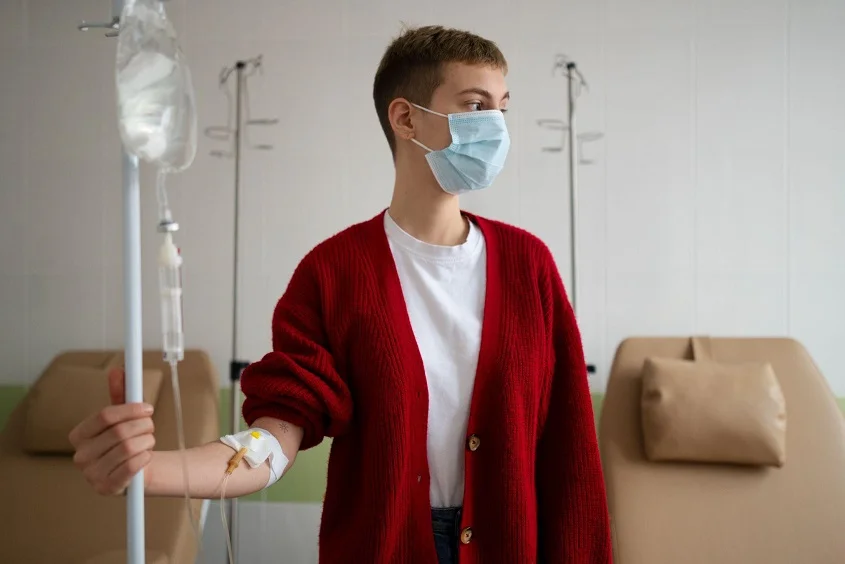Tackling the Nurse Shortage in High-Demand Fields Like Oncology
- Updated on: Jul 2, 2025
- 3 min Read
- Published on Jul 2, 2025

The global healthcare system faces an escalating crisis of a severe shortage of nurses. This issue is particularly critical in high-demand specialties, such as oncology. Cancer diagnoses are increasing, and treatments are becoming more complex.
As a result, the need for skilled oncology nurses is more urgent than ever. These professionals provide essential clinical care and emotional support to patients in distress. However, the demand is outpacing the supply, which is putting pressure on healthcare systems and affecting patient outcomes.
In this article, we’ll explore the origins of the nursing shortage in oncology and propose actionable solutions to address this pressing healthcare issue.
Understanding the Scope of the Nurse Shortage in Oncology
The oncology nurse shortage is a growing issue affecting hospitals, clinics, and cancer centers. These nurses need advanced training in chemotherapy, symptom management, and palliative care, which makes them hard to replace. Yet fewer are entering the field as emotional strain, certification demands, and retirements continue to shrink the workforce.
In addition, cancer rates are steadily rising. Oncology Nursing News reports that new cancer cases in 2024 are expected to exceed 2 million, or nearly 5,500 each day. Retaining experienced oncology nurses is vital to maintain high-quality care. However, the shortage is worsening as many older ones retire. This projected gap underscores the urgency of investing in recruitment, training, and retention efforts.
The Emotional and Technical Demands of Cancer Care
Oncology nursing requires a unique blend of clinical expertise and emotional resilience. Nurses must administer complex treatments, manage severe side effects, monitor patients for complications, and provide palliative or end-of-life care. At the same time, they support patients and families through emotionally intense, often traumatic experiences.
This dual burden contributes significantly to stress and burnout. A recent survey revealed that 82.6% of oncology nurses in the US feel their workload has increased. Further, technological advancements in cancer therapies demand continuous education and adaptability, which adds to their responsibilities. Lack of staffing, mental health resources, and training often causes compassion fatigue and pushes skilled nurses to leave.
Limited Training Pipelines for Oncology Nurses
While general nursing programs cover basic cancer care, few offer in-depth oncology-specific curricula or hands-on clinical placements in cancer centers. Aspiring oncology nurses often face barriers such as long waitlists, faculty shortages, and a lack of structured mentorship opportunities.
Moreover, the high cost and time required for continuing education in oncology deter many nurses from choosing this path. Without a strong academic and clinical infrastructure, the workforce is not adequately prepared to handle the rising complexity and volume of cancer cases. As a result, healthcare systems struggle to fill essential oncology nursing roles.
Incentivizing Career Advancement Through Education
Closing the oncology staffing gap requires more than hiring; it calls for upskilling current nurses. Supporting flexible continued education is one of the most effective ways to do that. That’s where flexible online programs come in. Pathways like BSN to DNP online are proving invaluable for helping nurses advance without leaving their jobs.
These programs allow registered nurses to advance their qualifications without stepping away from the bedside, states Baylor University. More importantly, a Doctor of Nursing Practice (DNP) equips nurses with advanced clinical knowledge and leadership training. It also fosters systems-level thinking, which is especially critical in complex fields like oncology.
Cancer patients often require multidisciplinary care, tailored symptom management, and emotional support; skills that DNP-level nurses are uniquely prepared to deliver. By incentivizing RNs to pursue these advanced credentials, healthcare organizations strengthen their teams. This also leads to improved patient outcomes in high-stakes environments like cancer care.
Expanding Role of Nurse Practitioners in Oncology
As the oncology nurse shortage deepens, nurse practitioners (NPs) are taking on advanced roles to help close gaps in cancer care. With the training to diagnose, prescribe, and manage treatment, they lead survivorship programs and provide palliative support. NPs are vital in expanding timely, high-quality care, particularly in underserved and rural communities.
According to The Oncology Nurse, the number of cancer survivors is expected to reach 20.3 million by 2026, a 31% rise from 2016. To manage this surge, oncology organizations are exploring strategies like hiring more advanced practice providers. Many believe these professionals significantly enhance the quality and continuity of patient care.
Public-Private Partnerships to Strengthen the Workforce
Public-private partnerships (PPPs) offer a strong solution to the oncology nurse shortage. They bring together government, academia, healthcare, and industry to pool resources. These partnerships help expand training, provide scholarships, and build early-career pathways into oncology nursing.
Private sector funding for simulation labs, research, and technology-based learning helps accelerate clinical readiness. Government agencies support expansion through grants and workforce programs. Together, these partnerships create a sustainable approach to strengthening and specializing the oncology nursing workforce.
In 2023, the Health Resources and Services Administration announced over $100 million in awards to expand and strengthen the nursing workforce, which includes oncology. The funding supports programs to help Licensed Practical Nurses become Registered Nurses and train nurses in primary, mental, and maternal health care. It also addresses faculty shortages.
Building a Resilient Oncology Nursing Workforce
Addressing the oncology nurse shortage demands swift, coordinated efforts across education, policy, and healthcare sectors. Investment in oncology nurses, both professionally and personally, is essential.
It ensures patients continue to receive expert, compassionate care. This shortage is more than a staffing issue; it is critical to the future of cancer treatment.












